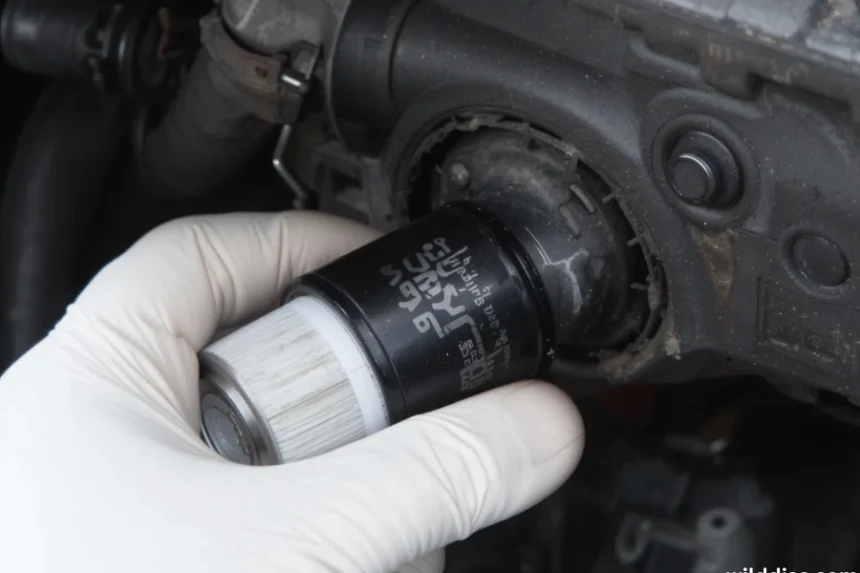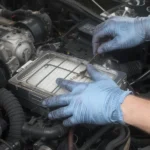Keeping your car in top shape is crucial for longevity, performance, and safety. One crucial yet often overlooked component in this regard is the fuel filter. For owners of the Passat 2017 V6, understanding the fuel filter change interval is vital. This article will explore what you need to know about the fuel filter Passat 2017 V6 change interval, why it matters, signs of a failing fuel filter, and how to replace it properly.
Understanding the Role of the Fuel Filter in Your Passat 2017 V6
The fuel filter plays a significant role in your Passat’s fuel system. Its main purpose is to purge the gasoline of pollutants like rust, dirt, debris, and other impurities before it enters the engine. Clean fuel is necessary for the engine to operate and burn as efficiently as possible, and this filtration procedure helps guarantee that it does.
In the Passat 2017 V6 model, the fuel filter is designed to work efficiently over a certain period, but neglecting to replace it can lead to problems like poor engine performance, reduced fuel efficiency, and even engine damage.
Why the Fuel Filter Passat 2017 V6 Change Interval Is Important
Knowing the recommended change interval for the fuel filter Passat 2017 V6 is essential because it prevents fuel system issues. Over time, the filter becomes clogged with contaminants, restricting fuel flow and causing the engine to work harder. This can lead to issues such as misfires, rough idling, difficulty starting, and decreased acceleration.
Additionally, a blocked fuel filter may cause fuel pump to work harder or perhaps fail sooner rather than later. Therefore, adhering to the recommended change interval is a preventative measure that saves money and maintains vehicle reliability.
Recommended Fuel Filter Change Interval for Passat 2017 V6
According to Volkswagen, manufacturer of Passat 2017 V6, the gasoline filter should be changed every 20,000 to 40,000 miles or around every two years, whichever comes first.However, this interval can vary based on driving conditions, fuel quality, and environmental factors.
For example, if you frequently drive in areas with poor-quality fuel, dusty roads, or harsh conditions, you may need to change the fuel filter more often. Conversely, if your driving is mostly city-based, with regular stops and starts, the lifespan of the filter may be slightly extended.
Checking the Owner’s Manual
The most reliable source for the precise fuel filter change interval is your vehicle’s owner’s manual. Volkswagen typically provides guidelines tailored to specific models and years. Always refer to the official manual, as it may specify different maintenance schedules or additional instructions for the Passat 2017 V6.
Signs That Indicate the Need for a Fuel Filter Change
While adherence to the regular interval is best, certain symptoms can signal that your Passat 2017 V6’s fuel filter needs immediate attention:
Engine Misfires or Hesitation: A clogged fuel filter can cause uneven fuel delivery, leading to misfires.
Difficulty Starting the Vehicle: If the fuel filter is severely clogged, the car may struggle to start or take longer to ignite.
Decreased Fuel Efficiency: Reduced fuel flow can cause the engine to work harder, decreasing mileage.
Loss of Power: Slow acceleration or sluggish performance may be signs of restricted fuel flow.
Engine Stalling: In severe cases, partial fuel blockage can cause stalling, especially under load or at high speeds.
If you notice any of these issues, it’s advisable to have your fuel system checked by a professional.
How to Change the Fuel Filter on a Passat 2017 V6
Changing the fuel filter is a maintenance task that requires caution and proper tools. Here’s a general overview of the process:
Safety Precautions: Ensure the vehicle is parked on a flat surface, cool, and with the parking brake engaged. Wear gloves and eye protection.
Relieve Fuel System Pressure: Locate the fuel pump relay and disconnect it; then start the engine until it stalls to release residual pressure.
Locate the Fuel Filter: On Passat 2017 V6 models, the fuel filter is typically located along the fuel line, accessible from underneath the vehicle or inside the engine bay.
Disconnect Fuel Lines: Carefully disconnect the fuel lines from the filter. Be ready for occasional fuel spills; collect drips with towels.
Remove the Old Filter: Unfasten any brackets or clips holding the filter in place, then remove it.
Install the New Filter: Attach the new filter, ensuring correct orientation (direction of flow usually marked on the filter).
Reconnect Fuel Lines: Secure all connections tightly to prevent leaks.
Check for Leaks: Turn the ignition on without starting the engine to pressurize the system and inspect for leaks.
Start the Engine: Start the vehicle and verify smooth operation.
Always refer to the specific service manual for detailed instructions tailored to the Passat 2017 V6.
Professional vs. DIY Fuel Filter Replacement
While replacing the fuel filter can be a DIY task for experienced enthusiasts, many prefer to have it done professionally due to the intricacies involved. A qualified mechanic has the proper tools, safety equipment, and expertise to perform the job efficiently, minimizing risks like fuel leaks or fire hazards.
Final Thoughts on Fuel Filter Passat 2017 V6 Change Interval
Regular maintenance is key to a healthy vehicle. The fuel filter Passat 2017 V6 change interval, generally recommended every 20,000 to 40,000 miles or about every two years, provides a good guideline. However, always pay attention to your vehicle’s specific needs and signs of issues.
By staying ahead of fuel filter replacement, you ensure your Passat runs smoothly, maintains fuel efficiency, and avoids costly repairs. It is always wise to get professional advice if you have any doubts regarding the process or the state of your fuel filter.



